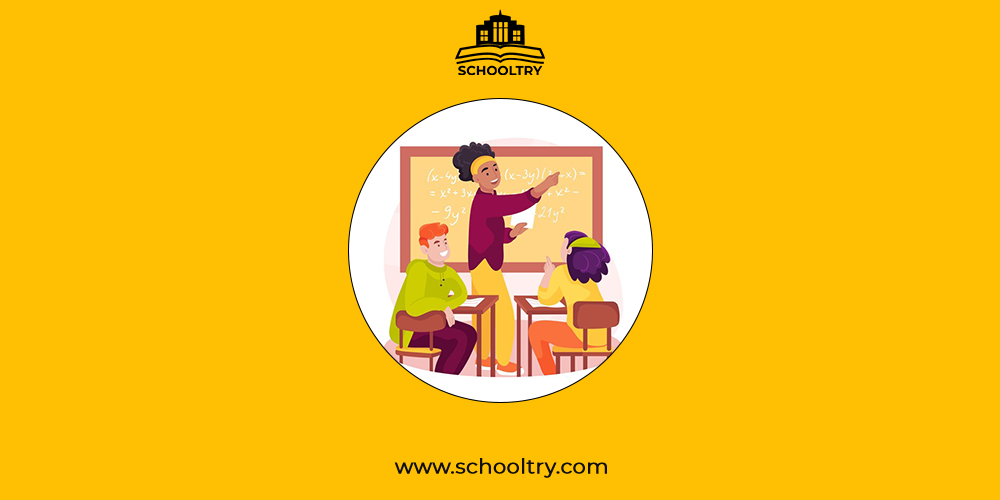Teachers are one of the major reasons why the educational system is functioning well. How teachers influence student’s education can be a key factor in student’s success. They help to shape the mindset and some of the mentality of the students.The influence of teachers on student’s education is immeasurable. Teachers supports students and help them to develop a good attitude towards learning. However, their great sacrifice to teaching and guidance helps student to achieve success in life.
Who is a Teacher?
A teacher, also called a schoolteacher or formally an educator, is a person who helps students to acquire, knowledge and virtues.
Teachers professional duties may extend beyond formal teaching. Outside of the classroom teachers may accompany students on field trips, supervise study halls, help with the organization of school functions, and serve as supervisors for extra curricular activities.. They also have the legal duty to protect students from harm, such as that which may result from bullying, sexual harassment, racism or abuse. In some education systems, teachers may be responsible for student discipline.
Teaching is a highly complex activity. This is partially because teaching is a social practice, that takes place in a specific context (time, place, culture, socio-political-economic situation etc.) and therefore is shaped by the values of that specific context. Factors that influence what is expected (or required) of teachers include history and tradition, social views about the purpose of education, accepted theories about learning, etc.
The competences required by a teacher are affected by the different ways in which the role is understood around the world.
Some evidence-based international discussions have tried to reach such a common understanding. For example, the EU has identified three broad areas of competences that teachers require:
Working with others,Working with knowledge, technology and information, and Working in and with society.
Scholarly consensus is emerging that what is required of teachers can be grouped under three headings:
01. knowledge (such as: the subject matter itself and knowledge about how to teach it, curricular knowledge, knowledge about the educational sciences, psychology, assessment etc.
02. craft skills (such as lesson planning, using teaching technologies, managing students and groups, monitoring and assessing learning etc.)
03. dispositions (such as essential values and attitudes, beliefs and commitment)
Who is a Student?
A student is a person or individual that is enrolled in a school.
In Nigeria , Education is classified into four systems known as a 6-3-3-4 system of education. It implies six years in primary school, three years in junior secondary, three years in senior secondary and four years in the university. However, the number of years to be spent in university is mostly determined by the course of study. Some courses have longer study lengths than others. Those in primary school are often referred to as pupils. Those in university, as well as those in secondary school, are referred to as students.
The Nigerian system of education also has other categories like the polytechnics and colleges of education. The Polytechnic gives out National Diploma and Higher National Diploma certifications after two years and/or four years of study respectively.
You can obtain a higher National Diploma (also known as HND) in a different institution from where the National Diploma (also known as ND or OND) However,you cannot obtain the HND without the OND certificate.
On the other hand, the respective colleges of education provide students with the Nigerian Certificate in Education (NCE) after two years of study.
How Teachers Influence Student’s Education
01. Encouragement:
Encouraging students is an important part of teaching. Every student needs a teacher that motivates and encourages them. Although, praise and recognition is also a good form of encouragement. However Teachers who praise students for their efforts and accomplishments, both big and small motivate them to learn more. This can also help students feel good about themselves.
02. Discipline:
Maintaining discipline in the classroom is one of the reasons why the teacher’s influence is so important. Teachers make it possible for students to enjoy a positive learning environment where they can learn. Although There is no perfect approach to discipline. Every teacher is ultimately trying their best. Teachers should use a variety of techniques, such as positive feedback , constructive criticism and redirection. These methods will help to ensure discipline in the classroom.
03. Guidance:
Guiding students is a crucial aspect of teaching. Guidance on making decisions is very essential for students. However, Students need to be able to make reasonable decisions to succeed in school and in life as well. The Teachers role is to assist the students and guide them to stay on the right track. Students make good decisions when they are taught how to acquire information and check the pros and cons. This helps them to reduce the risk of making bad decisions.
Conclusion
In the early 2000s, a lot of schools always had debates on how important a teacher is in the life of a student. Although, a child can self learn but in most cases, they still need a teacher to guide them through.
Teachers have a lot of impact on every student’s education. They inculcate their own knowledge, skills, and values into the students. They also play a vital role in shaping student’s attitudes, manners and behaviors.
Are you in need of a software web solution that doesn’t only connects students and teachers but also connects parents and other stakeholders? SchoolTry makes it possible for teachers and students to connect without any hassle. Click here to sign up for free.




